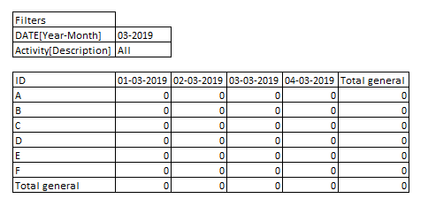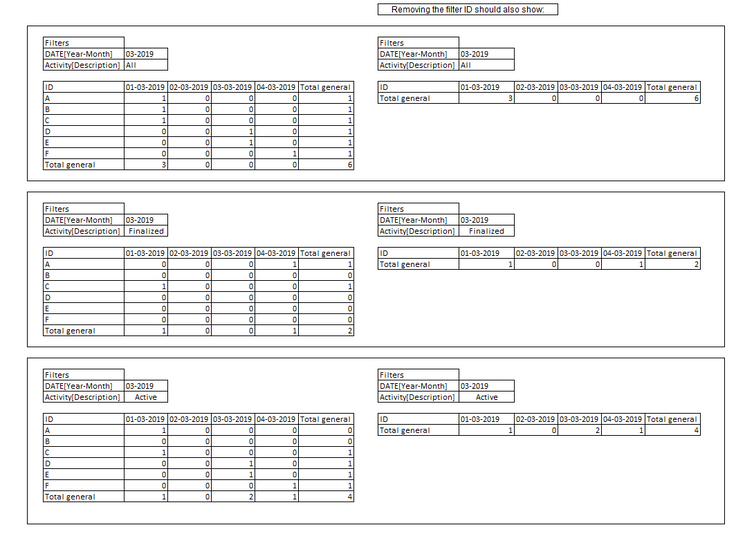- Power BI forums
- Updates
- News & Announcements
- Get Help with Power BI
- Desktop
- Service
- Report Server
- Power Query
- Mobile Apps
- Developer
- DAX Commands and Tips
- Custom Visuals Development Discussion
- Health and Life Sciences
- Power BI Spanish forums
- Translated Spanish Desktop
- Power Platform Integration - Better Together!
- Power Platform Integrations (Read-only)
- Power Platform and Dynamics 365 Integrations (Read-only)
- Training and Consulting
- Instructor Led Training
- Dashboard in a Day for Women, by Women
- Galleries
- Community Connections & How-To Videos
- COVID-19 Data Stories Gallery
- Themes Gallery
- Data Stories Gallery
- R Script Showcase
- Webinars and Video Gallery
- Quick Measures Gallery
- 2021 MSBizAppsSummit Gallery
- 2020 MSBizAppsSummit Gallery
- 2019 MSBizAppsSummit Gallery
- Events
- Ideas
- Custom Visuals Ideas
- Issues
- Issues
- Events
- Upcoming Events
- Community Blog
- Power BI Community Blog
- Custom Visuals Community Blog
- Community Support
- Community Accounts & Registration
- Using the Community
- Community Feedback
Register now to learn Fabric in free live sessions led by the best Microsoft experts. From Apr 16 to May 9, in English and Spanish.
- Power BI forums
- Forums
- Get Help with Power BI
- Desktop
- Count first occurrence by selected filters date
- Subscribe to RSS Feed
- Mark Topic as New
- Mark Topic as Read
- Float this Topic for Current User
- Bookmark
- Subscribe
- Printer Friendly Page
- Mark as New
- Bookmark
- Subscribe
- Mute
- Subscribe to RSS Feed
- Permalink
- Report Inappropriate Content
Count first occurrence by selected filters date
Hi, I am working with data visualization and trying not to count duplicates and not seeing how to accomplish, the objective is to count only the first ocurrence, using as a filter periods of dates, years, months etc and/or filtering the other related tables.
The objective is to work only with data that is displayed dynamically according to the selected filters.
Below is some made up data that should help explain issue:
Another user from the community helped me with the issue of duplicity (v-lili6-msft ), but not work if I apply a filter to Date column or other filter of the related tables.
Measure used to count the first occurrence.
result = CALCULATE(COUNTROWS(Query),FILTER(Query,Query[DATE]=CALCULATE(MIN(Query[DATE]),ALLEXCEPT(Query,Query[ID]))))+0
In this measure, I would like to include the respective filters mentioned above. I have used the allselected function but it does not work.
Actually:
Issue when using the date filter:
Expected result using filters:
I emphasize that I can not occupy calculated columns is too much information and applying only the filters could reduce the processing times in Analysis Services 2014.
Thank You.
Solved! Go to Solution.
- Mark as New
- Bookmark
- Subscribe
- Mute
- Subscribe to RSS Feed
- Permalink
- Report Inappropriate Content
You may try the following measure.
Measure =
SUMX (
VALUES ( Query[ID] ),
CALCULATE (
VAR d =
MIN ( Query[DATE] )
RETURN
IF ( d = CALCULATE ( MIN ( Query[DATE] ), ALLSELECTED ( Query[DATE] ) ), 1, 0 )
)
)
If this post helps, then please consider Accept it as the solution to help the other members find it more quickly.
- Mark as New
- Bookmark
- Subscribe
- Mute
- Subscribe to RSS Feed
- Permalink
- Report Inappropriate Content
You may try the following measure.
Measure =
SUMX (
VALUES ( Query[ID] ),
CALCULATE (
VAR d =
MIN ( Query[DATE] )
RETURN
IF ( d = CALCULATE ( MIN ( Query[DATE] ), ALLSELECTED ( Query[DATE] ) ), 1, 0 )
)
)
If this post helps, then please consider Accept it as the solution to help the other members find it more quickly.
Helpful resources

Microsoft Fabric Learn Together
Covering the world! 9:00-10:30 AM Sydney, 4:00-5:30 PM CET (Paris/Berlin), 7:00-8:30 PM Mexico City

Power BI Monthly Update - April 2024
Check out the April 2024 Power BI update to learn about new features.

| User | Count |
|---|---|
| 112 | |
| 97 | |
| 85 | |
| 67 | |
| 59 |
| User | Count |
|---|---|
| 150 | |
| 120 | |
| 99 | |
| 87 | |
| 68 |




